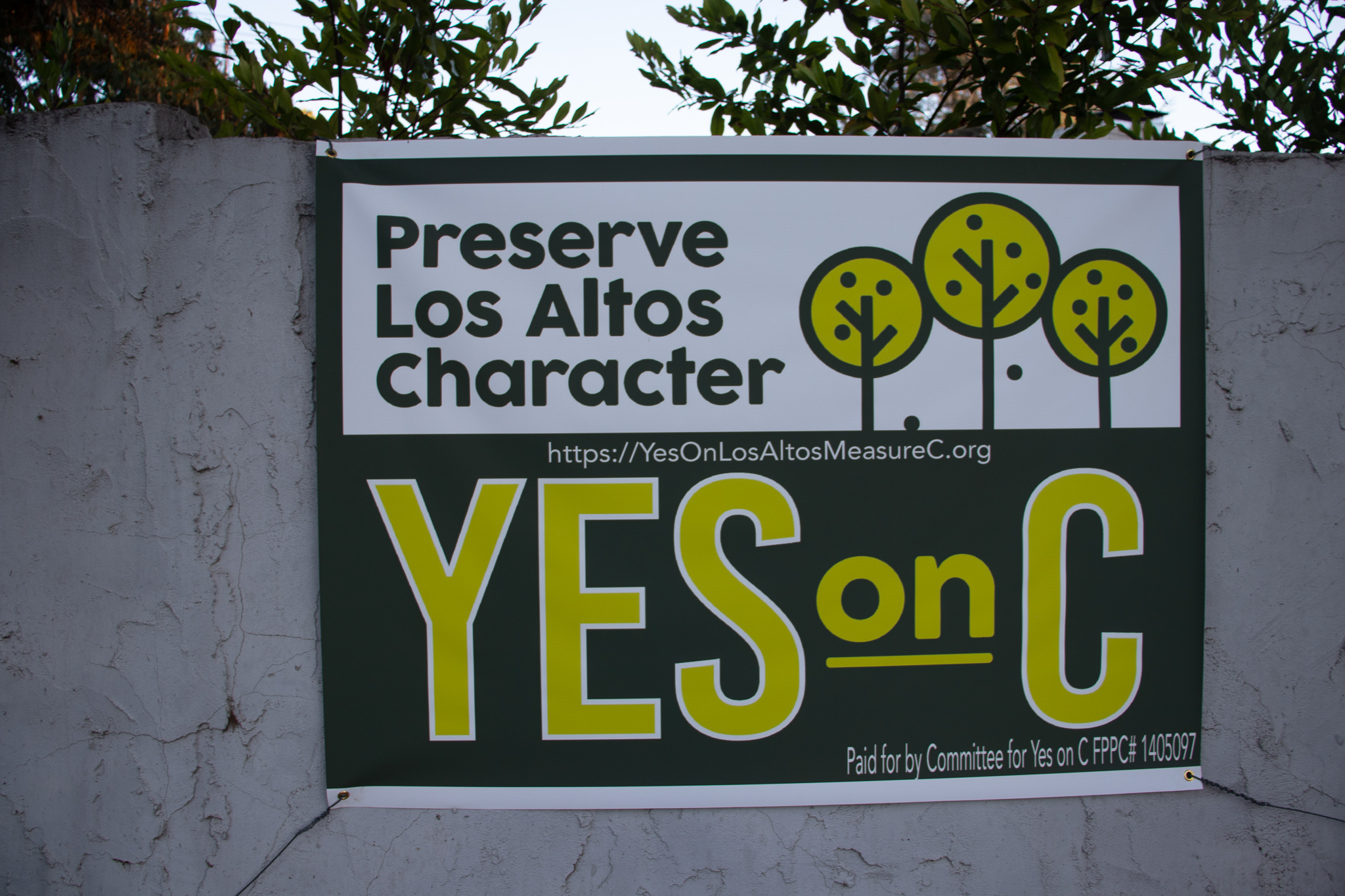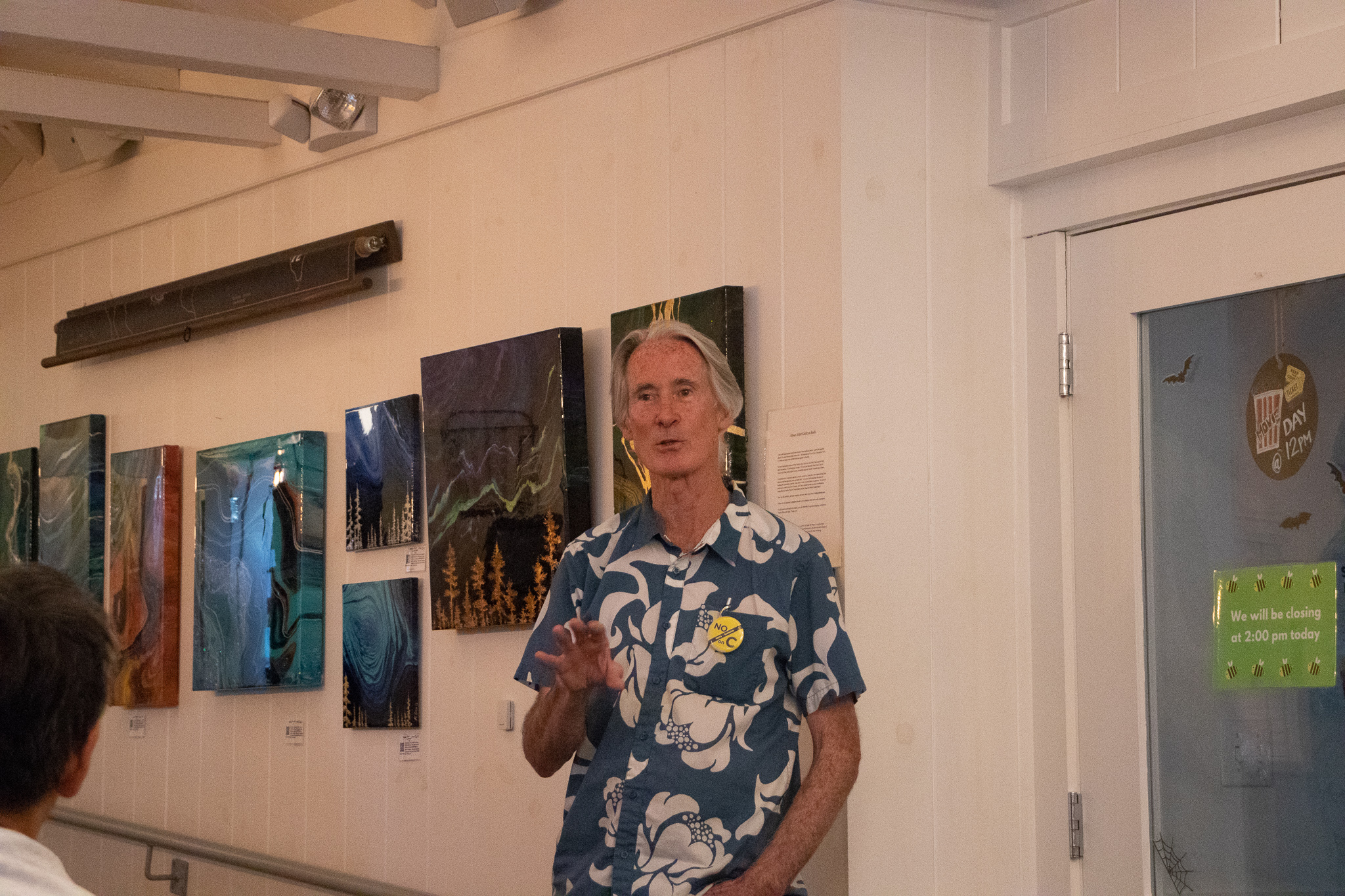
Update on Nov. 7, 2018 – Measure C failed to pass in the Nov. 6, 2018 election with about 52 percent of the votes against the initiative.
A ballot measure to decide if Los Altos’ residents will have final say over the leasing, selling and development of public land in the town has divided this small peninsula city heading into the Nov. 6 election.
The campaigns for and against Measure C have generated almost $60,000 and signs litter neighborhoods and downtown streets. Numerous letters to the editor and opinion pieces have been written for the Los Altos Town Crier. While the measure’s backers say they simply want to preserve public lands, opponents see it as a bid to block development.
“So you have some people in town who want to have no development happen ever, and then there are some who want to have substantial growth to allow the town to mature and remain vibrant or become more vibrant,” said one local land-use lawyer, who requested anonymity to not alienate any clients.
“This can be very emotional for people because they have a vision of what they want Los Altos to be in the future, so it becomes a very contentious issue,” the lawyer added. “No one knows how it’s going to come out.”
Proponents collected nearly 3,000 signatures – more than the required minimum to put the measure on the ballot. If passed, it would impact public lands designated as “parks,” “other open space” and “public and institutional.” It would require voter approval in four instances — if the city wants to change the use listed in the city’s general plan, if they want to sell or transfer the land, if they want to lease the land for more than 180 days or if they want to designate the land as something else.
The yes campaign’s website says residents Jim Jolly, Tom Ferry and Betsy Reeves submitted the initiative. Los Altos doesn’t have a history of selling parks. In 2014, the city council considered a proposal to build a school on either Rosita or McKenzie Park but backed down amid community pressure.
Anita Enander, who is running for city council, said Measure C would provide a necessary check on elected officials.
“Clear away all the smoke, all the electioneering and it basically comes down to a simple question: Do you want the citizens to have that check and balance or do you trust the city council to make basically an irreversible decision to dispose of public land for public access,” Enander said.
In contrast to Measure D, a proposed increase to the transient occupancy tax — which has no formalized support or opposition and has not raised any money — Measure C is a lot noisier.
The two campaigns are about $3,500 apart in financing. The yes campaign has raised about $32,326 and the no campaign has raised about $28,830, according to the most recent campaign finance disclosures.
The California Association of Realtors recently contributed $10,000 to the no campaign, which has some Measure C supporters concerned too much money is coming from developers and questioning why an outside organization donated money.
Ryan Carrigan, the government affairs director of the Silicon Valley Association of Realtors, said that for local races, the local association decides how much gets contributed.
“We believe that elected bodies (and) city council appointed officials in the planning commission are the most appropriate decision makers,” Carrigan said.
This highlights two other key points of contention in the campaign: development and growth.
“We don’t have change if we don’t have development,” said Dennis Young, an accountant, who is against the measure, at a recent gathering at the downtown restaurant, Bumble. “If we don’t have increased vitality downtown, it’s going to die.”
Roberta Phillips, a Measure C backer, dismissed the argument that supporters are against development.
“There is no one in our town that wouldn’t like to see more vibrancy in the downtown,” Philips said in an interview. She also said that voters should have a say in what goes on public lands.
Another concern over the ballot measure is the wording. Cathy Lazarus, council chair of the Leagues of Women Voters of Santa Clara County, described the language of the measure as vague.
“The question becomes whether the public really wants to understand the nuance and the challenges associated with public sector leases,” she said during the event at Bumble.
Leases are a controversial topic. The opponents argue that any renewal of a lease on public lands would be subject to a vote. Proponents, including Enander, say the leases are only subject if they “alter the public character of the lands.”

In addition to the wording, Kim Cranston, who despite being a Los Altos Hills resident, is a member of the steering committee because of his stated concern for the community and 100-year family roots in the town, takes issue with the way the measure was presented.
“There’s no need to protect our parks,” Cranston said in an interview. “The city’s added parks. It’s never tried to sell parks.”
Paul Gonella initially signed his name on the initiative to get the measure on the ballot but later petitioned to have it removed.
“They threw up this big boogieman of ‘city council is going to sell our park land’,” Gonella said in an interview.
Enadner believes, however, from her observations of seeing people collect signatures, they were clear about its purpose.
And then there is the discussion of costs. City staff said it would cost between $50,000 and $500,000 to put a vote on the ballot depending on whether the election was during an off year. Proponents say it would not cost over $50,000.
On October 9, the city council adopted an amendment to the general plan with some similarities to Measure C. It would “prohibit the sale, transfer of title, or re-designation of City owned lands” for the same categories of land as Measure C without voter approval according to the Los Altos municipal code. But the amendment is not as expansive as Measure C because it doesn’t cover leases or all the same lands.
Stuart Eckmann, who signed his name on the initiative to put Measure C on the ballot, expressed concerns that the amendment is not as thorough and could easily be changed by a new council.
“As easily as they passed it council could reverse it,” he said.
